When entering a shopping center in Bogotá, the most likely thing is that a uniformed security guard will ask you to turn off the engine and open the doors and trunk to search you, with the help of a trained dog, to see if you have a bomb.
“But what if it’s necessary?” BBC Mundo asked a security guard at the Retiro shopping mall, in the north of the Colombian capital, a few days ago.
LOOK: The fear in Russia’s neighboring countries that they are Putin’s next target
“Well, can’t you see that up front (in the Andino shopping mall) the guerrillas planted a bomb five years ago that killed three people?”
Colombian society is in a state of alert. It is not clear whether it is due to trauma inherited from the war, which peaked in the 1990s, because the war somehow continues, or because crime has taken over the social climate, as is also the case elsewhere. Or if it’s a little of all of these things.
In any case, the security measures that may be unusual in other countries in the region, also plagued by crime, are not limited to guard dogs: here it is common for them to search you when walking into a shopping mall or for the Police. stop it and do a random inspection.
It is also common to see soldiers armed with rifles patrolling the streets and highways. And the private security industry, which includes escorts, guards and monitoring systems, is bigger than the police.
Today Colombia is not much more violent than other countries in the region. Although homicides increased last year, the number of 26 homicides per 100,000 inhabitants – the main criterion usually used to measure insecurity – is no higher than in Ecuador or Mexico and is lower than in Venezuela and Honduras.
In Bogotá, the number of 12.8 homicides per 100 thousand inhabitants, similar to that of Medellín, is close to that of Uruguay or Panama and lower than that of Brazil or Guatemala.
Colombia, then, stopped being an unusually violent country in Latin America. Mainly in big cities. And yet we see measures here that reflect a special feeling of insecurity, marked by a traumatic history and, also, by a huge private security industry.
“The war is over, but crime is not”
It is difficult to know which of these measures are exclusive to Colombia. Insecurity is a problem throughout Latin America and the solutions have generally been the same.
Guard and anti-explosive dogs, which in the case of shopping malls have lived and slept in the same building for years, emerged in the 1980s and 1990s, when bombs first by drug traffickers and then by guerrillas became relatively common in neuralgic. sectors of cities.
Dogs like these also exist in Mexico.
In 2019, in that country, the presence of soldiers on the streets to combat crime was made official and regulated. In Colombia this happened in the 70samid a wave of emergency presidential decrees called State of Siege.
There is also the example of private security, industries that in both Mexico and Colombia represent 1.5% of GDP and are the largest in the region, although these numbers do not include informal private security, which can be as large or larger than legal security. one.
The legal industry, in any case, has 800 companies and 400,000 employees in Colombia: security guards, escorts, drivers, trainers. It is a quarter of the employees of the National Police.
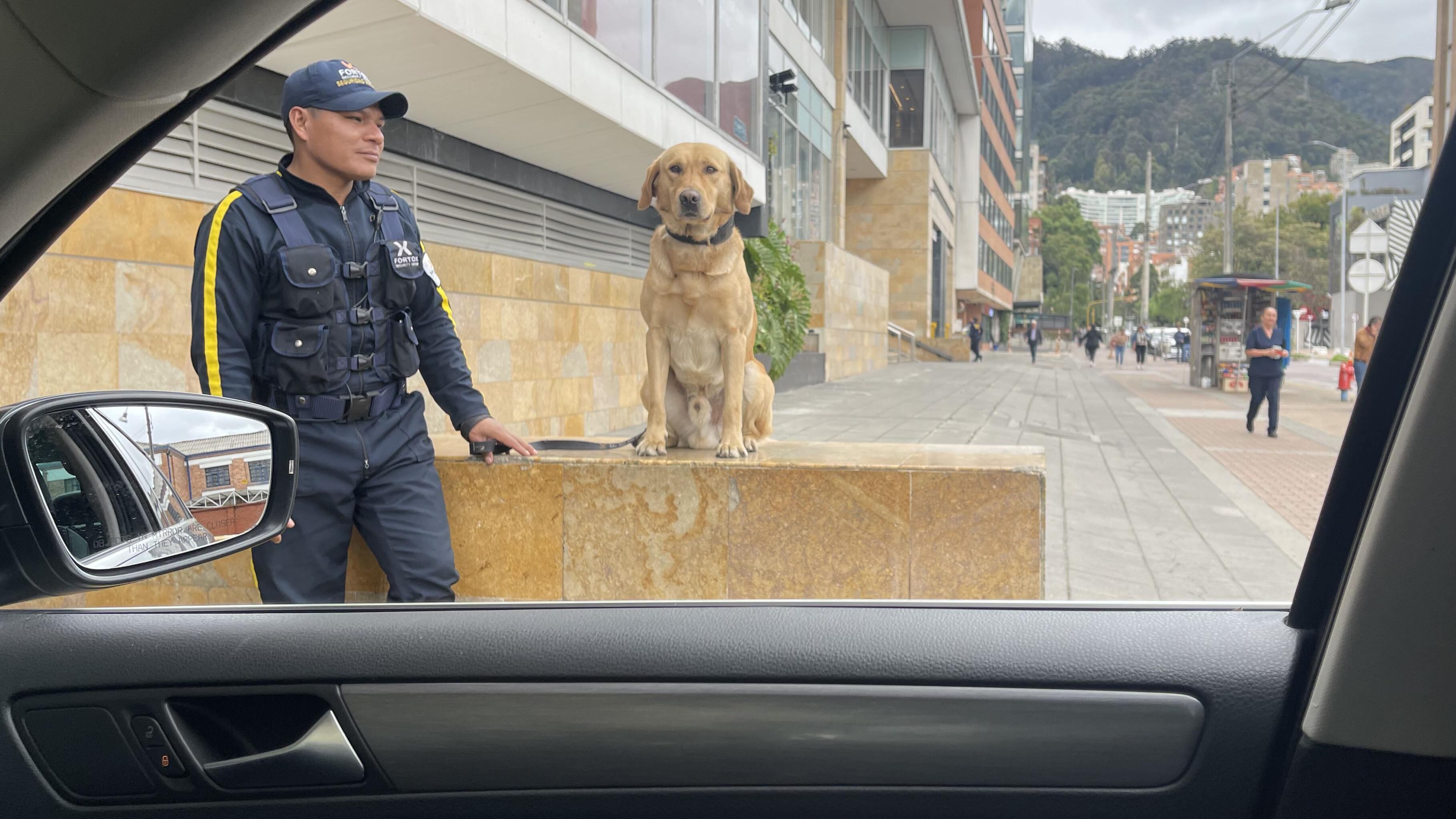
José Rivera is a union leader at the company Fortox, one of the largest. A former military man, he has worked as a security guard for 27 years. And for him the measures are justified.
“The war is over, but crime is not and crime is also harmful“, he says. “I don’t see a problem with, for example, when entering a building, they do due process to people, with identification and registration.”
In Colombia it is common that to enter a building it is necessary to register with a security guard. Common in office buildings, even universities, as well as residential buildings.
But nothing is more difficult than entering closed residential complexes as a visitor, a phenomenon that architect and urban planner Fernando de la Carrera considers the most transcendental product of this “society of fear”.
They swarm in rich and poor areas of cities, especially in Bogotá. They include several towers, are surrounded by bars and monitored by cameras on every corner. They are managed by lookouts and guard dogs. They occupy entire blocks.
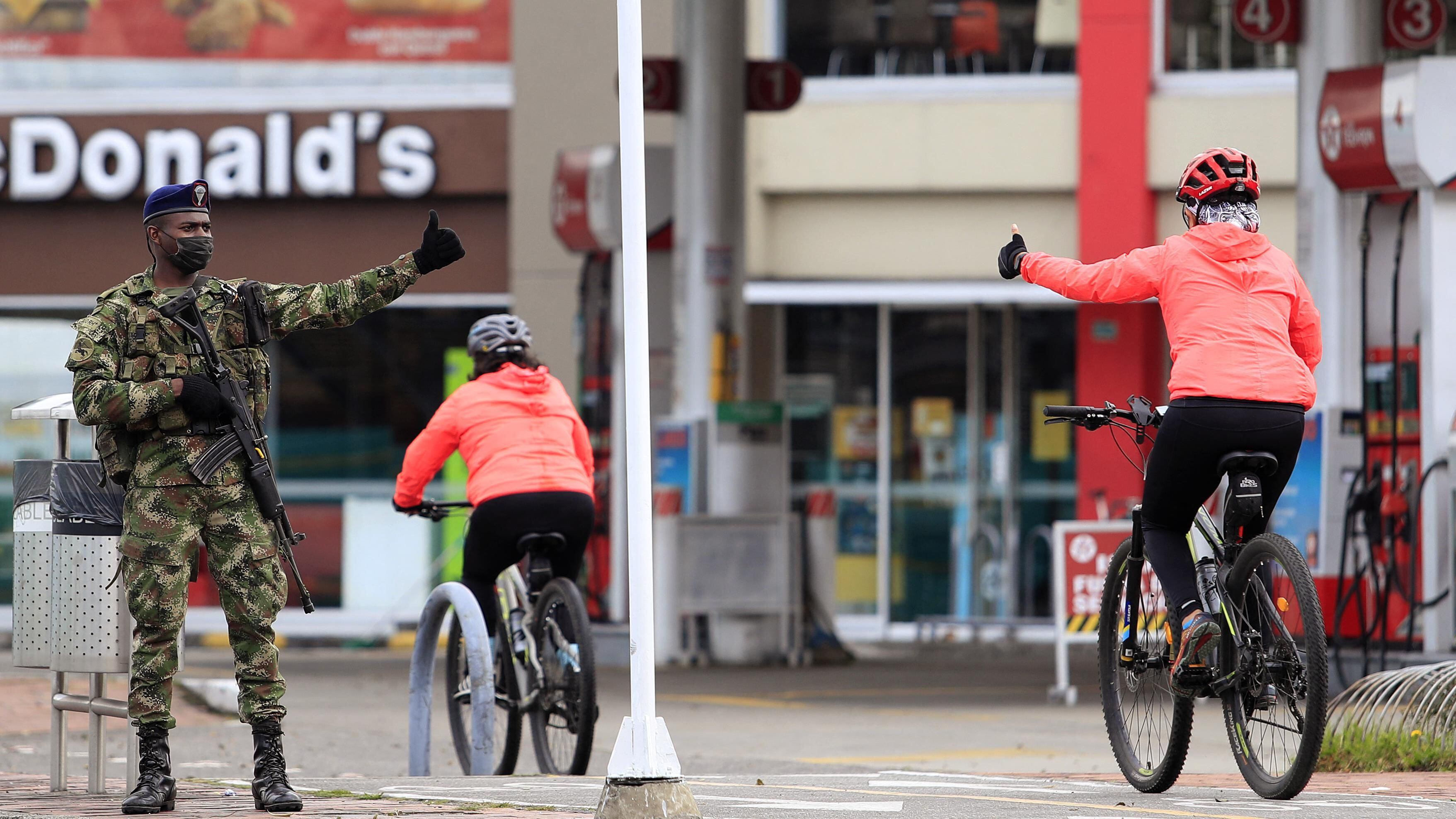
40% of Bogotá’s 9 million inhabitants live in a closed community. In Ciudad Verde alone, a neighborhood of gated communities in the south zone, 200,000 people live: it is a private city.
“The success of the closed complex model is fueled by fear and its growth coincides with the increase in violence that took over the nation from the 1980s onwards”, writes De la Carrera in Rejalópolis, a study he published with the University of the Andes .
“Fear has led us to sacrifice public space and the social and economic interactions it generates.“, he states. “The spatial segregation that motivates closed complexes increases the feeling of fear, isolation and encourages more of the same: distrust, insecurity, more fear and more bars.”
Because extreme security measures do not just speak of a violent present, but of a past that is relived every time a violent event occurs. The past, that is, is lived in the present.
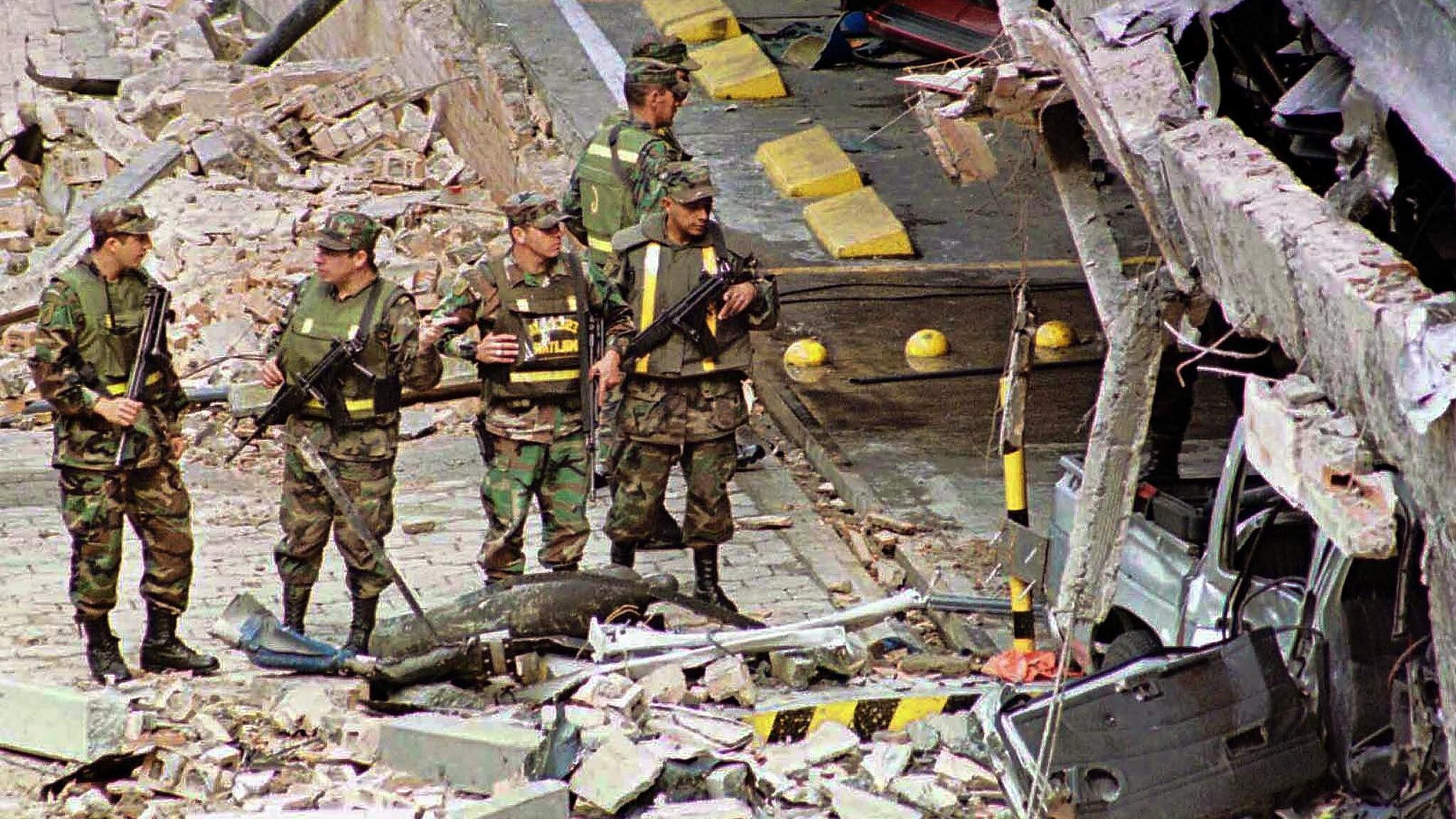
Escorts and Toyotas
The National Protection Unit is the state organization that guarantees the safety of Colombians at risk: officials, congressmen, peasant leaders and a long list of vulnerable communities.
The entity has around 2,000 bodyguards and another 8,000 that it hires from private security companies, in addition to trucks and weapons.
About 10,000 formal bodyguards in the country is similar to what is reported by the Federal Protective Service, a similar body in Mexico, a country twice its size.
“Protection must be salvation from fear, but it’s actually a business“, says Augusto Rodríguez, director of the UNP. “And there are people who play with this, who increase or decrease the risk according to their interests, because fear is the fertile ground for corruption.”
Rodríguez accompanied President Gustavo Petro throughout his career: they were together in the guerrilla, in Congress and in Bogotá City Hall.
“Protecting life is the central political line of this government,” he states, to explain why someone so close to the president presides over a generally secondary entity.
Since arriving, Rodríguez says he has found several corruption schemes: cars that are not used and are stuck and charge a quota for gasoline, vehicles that traffic drugs, schemes to sell legal weapons to illegal groups and deviations in the salary structure of employees .
“We want to detoyotize Colombia“, he guarantees, referring to the Toyota trucks that arrived in the country in the 80s, were a symbol of drug trafficking and today – almost always armored and white – are a status tool.
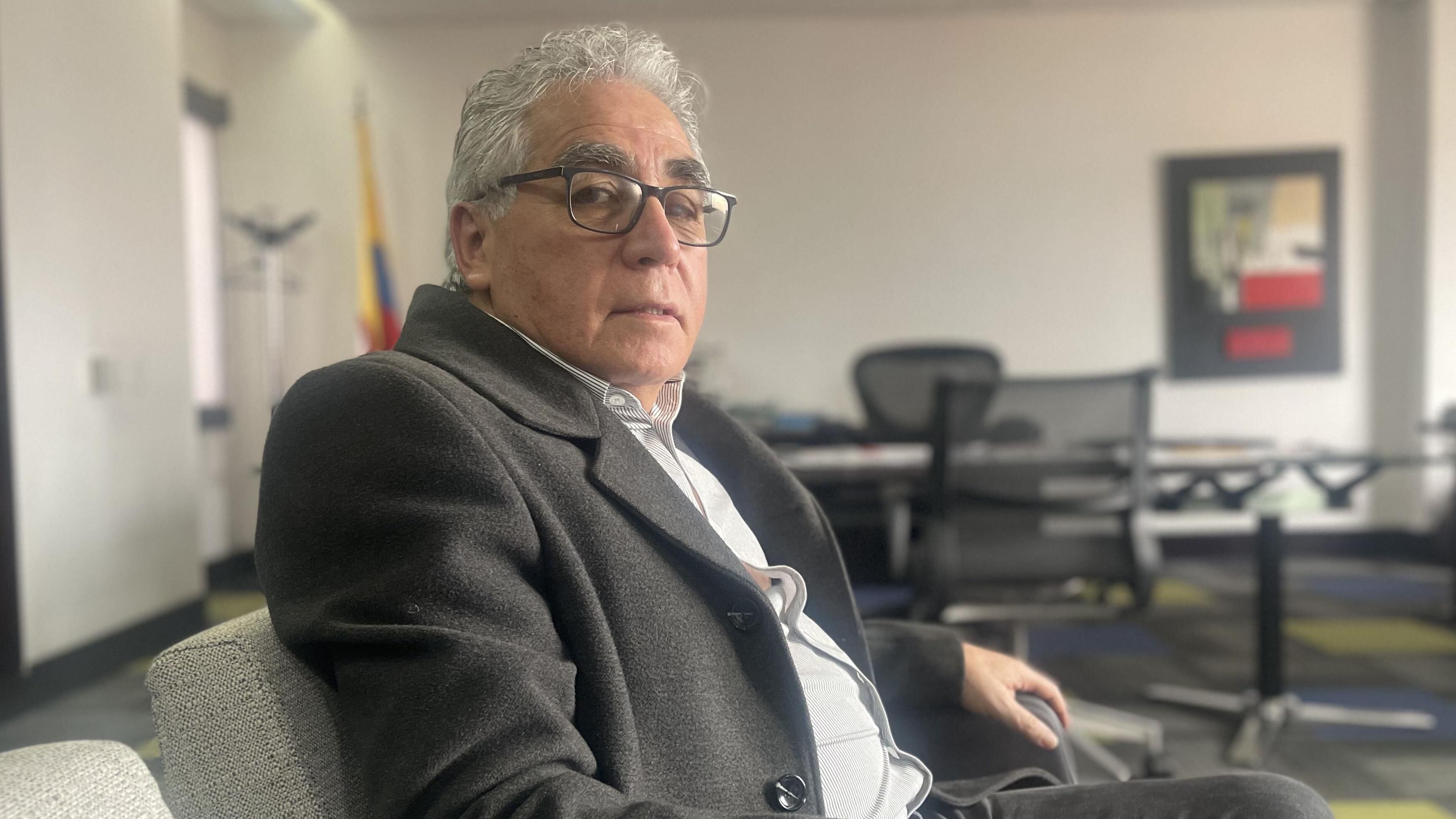
Rodríguez does not believe that security measures are exaggerated, in general: “Violence persists because inequality and land problems persist. (…) Many do not need security schemes, they have more of a mobility problem than a security problem, but the majority do.”
It seems, in any case, that there is a discrepancy between the reality of crime, which today is lower than before, and the measures that Colombians take to protect themselves, which are only increasing.
But for Luis Ignacio Ruiz, criminologist and social psychologist at the National University, there is no such thing as “unjustified fear”.
“Fear of crime involves many other emotions that don’t just speak of insecurity,” he says. “In several studies we discovered that people declare themselves insecure when their fear, in fact, is poverty, lack of education or hunger“.
“And to this we must add that the insecurity figures are never complete, because they omit a series of crimes that are not reported, in addition to the fact that the media, which give priority to crime, and now social networks, generate a effect of repetition of the event”.
Most of Colombian territory is no longer at war. But remembering it is not just a mental exercise: it has material implications for the present.
And that makes Colombians afraid. And they protect themselves from guard dogs to defend themselves.
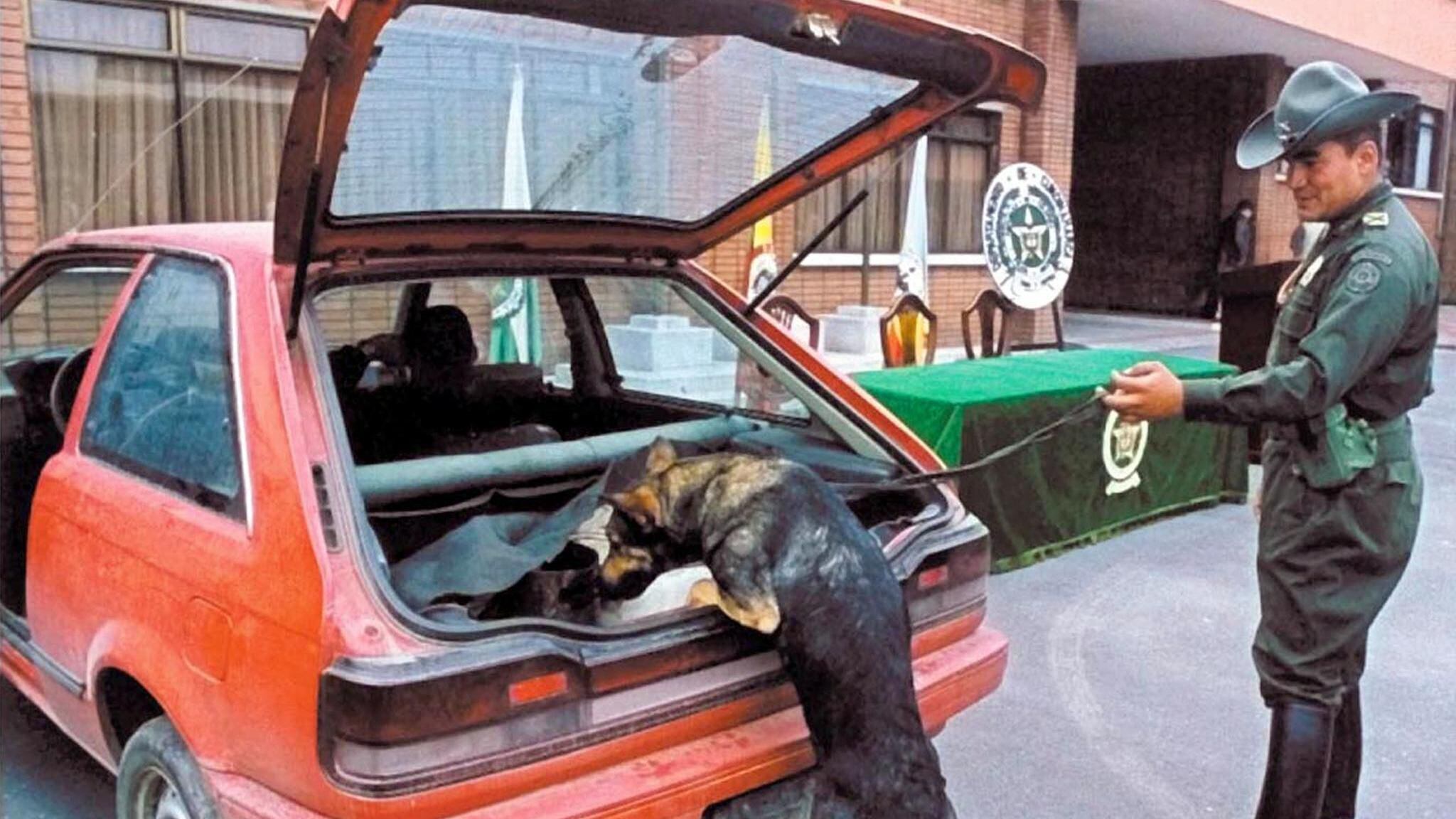
Source: Elcomercio
I am Jack Morton and I work in 24 News Recorder. I mostly cover world news and I have also authored 24 news recorder. I find this work highly interesting and it allows me to keep up with current events happening around the world.

:quality(75)/cloudfront-us-east-1.images.arcpublishing.com/elcomercio/FNV7E7HIS5BG7LWVX72INE6354.jpg)


:quality(75)/cloudfront-us-east-1.images.arcpublishing.com/elcomercio/DQ4MLCPEJ5D5NC6BFXZJ37ENK4.png)

:quality(75)/cloudfront-us-east-1.images.arcpublishing.com/elcomercio/KHRSVXMA7FDZDJQ4YRQJMTBDDM.jpg)
